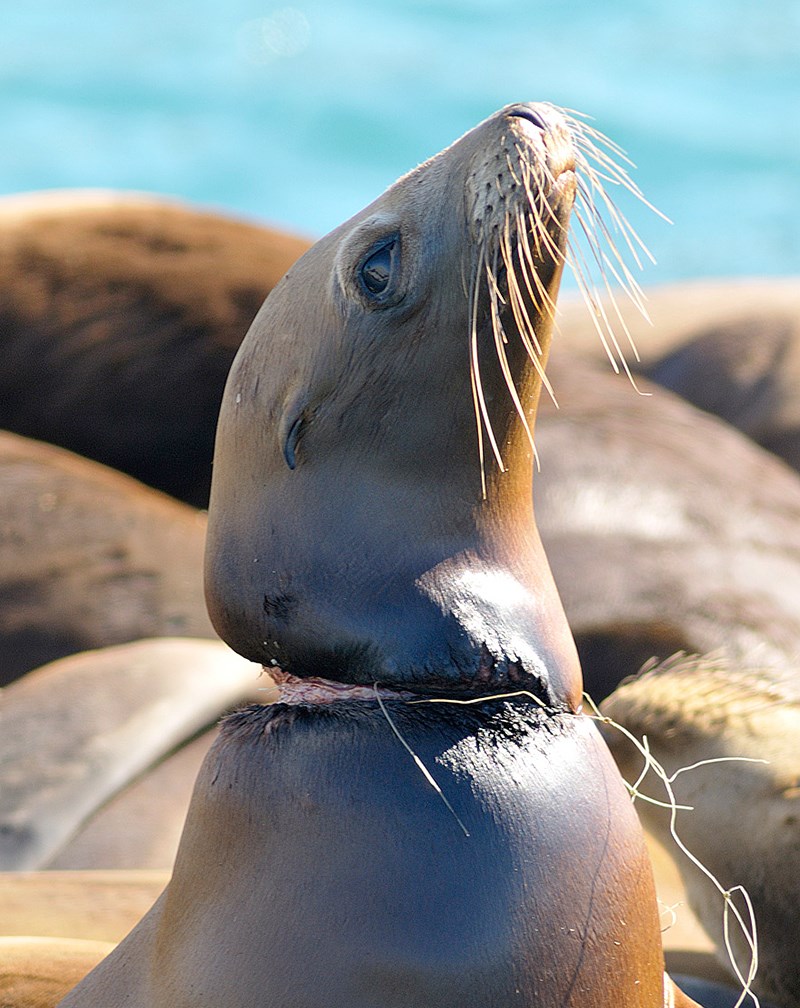The world’s oceans cover more than 70% of the planet’s surface and contain 97% of the Earth’s water. But today, there are now numerous plastic “islands” — some the size of states and countries — swirling in the middle of the largest oceans.
Currently, we recover only 5% to 10% of the plastics we produce; 50% goes to landfill, some is recycled but much finds its way into the marine environment.
Plastic shreds are even showing up in landscaping soil and in every bag of mushroom manure I purchased this year. These “screened” organic products cannot, in reality, remove such foreign items.
Our marine environment is not only drowning in plastic, so is our terrestrial one.
PLASTIC POLLUTION
Some plastic pollution facts, as reported by the United Nations Environment Program and National Geographic:
• 45 million tonnes of plastic are produced annually in the U.S. — equal to 136 kg or 300 lb. per person.
• Since 1950, global plastic production has increased 170 times, with almost 20% of that entering the world’s oceans every year — that’s equivalent to 10 million mid-sized vehicles.
• Our food, soft drink and non-durable household goods comprise the top three sectors using plastic.
• Plastics break down due to sun, wind and other physical weathering. The particles then act as sponges for waterborne contaminants such as pesticides (leached from agriculture, gardens and golf courses) and industrial wastewater. Moreover, microbeads in cosmetics, shower gels and toothpastes cannot be filtered by sewage treatment plants, meaning they end up in the ocean.
• Plastics comprise 80% of litter found in the oceans today, some areas having 60 times more plastic than plankton — the former being mistaken for the latter, resulting in poisoning, intestinal rupture and/or starvation to marine life.
• Every year, more than 100,000 turtles, marine mammals and seabirds die a slow and excruciating death due to plastic — via entanglement and ingestion.
• With exposure to heat, detergents or simply over time, these plastics become brittle, releasing toxins that can enter the human body through airways, ingestion and/or touch.
• In the last decade, only 11 substances have been tested for health impacts out of an estimated 100,000 chemical additives due to the industry’s non-disclosure.
SOME PLASTIC SOLUTIONS
Here’s what you and I can do:
• Go plastic-free: Think twice before purchasing. Today’s products tend to be made of plastic and lower quality materials, designed as either planned obsolescence — “designed for the dump” — or perceived obsolescence (must have the latest technology, fashion, etc.). See the Story of Stuff (storyofstuff.org/movies/story-of-stuff) about how our consumer lifestyle affects both the environment and workers’ health around the world.
• Avoid those centre aisles: Typical grocery stores display the packaged (as well as processed) food products in the middle aisles, many of which are over-packaged. When ordering from the deli, request greaseproof paper in lieu of Styrofoam/plastic or bring in your own reusable container. Food-safe materials include glass, enamel and stainless steel.
• Re-use, choose alternatives or go naked: Many folks now use durable shopping bags; extend that to the smaller (produce) bags as well, reusing plastic ones as many times as possible, choosing alternative cloth ones or going without.
• Recycle responsibly: Set-up a home, office and school system whereby soft and hard plastics (those without the recycling symbols) are separately cleaned and collected. Take turns being the “champion” to get the collections to your local Return-It depot (www.return-it.ca/locations/metro-vancouver).
• Remove plastic labels and rubber bands: Before composting your fruit peels and vegetable scraps, remove those foreign items.
Finally, you can celebrate BC Rivers Day on Sunday, Sept. 27. Join a local environmental stewardship group. Visit evolvemain.com/Riversday_Online/Events.php for listings.
Melissa Chaun of Port Moody is an ecologist with a passion for all things sustainable. She began her environmental career in the U.S. and has a certificate in Sustainable Community Development. She volunteers on various city committees and is currently co-ordinating meetings for Tri-City Greendrinks. Her column runs monthly.



